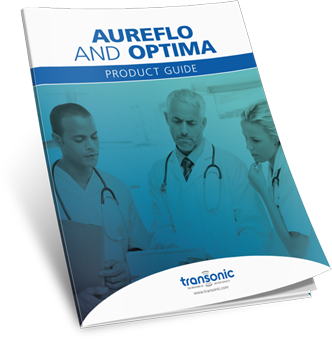
- Top
- Cardiac Surgery Procedures Delayed
- Patients Fear of Seeking Care Causes Additional Delays in Necessary Cardiac Surgeries
- How Do Post-operative COVID-19 Infections Affect Cardiac Surgery Patients?
- The Importance of COVID-19 Testing in Preoperative Patients
- Best Practices for Screening and Pre-Surgical Quarantining
- Quality Assurance during Cardiac Surgeries
- The Importance of Post-operative Cardiac Care for Patients
- Keeping Surgical Patients and Healthcare Workers Safe
- Schedule a Call
The COVID-19 pandemic has caused disruptions to healthcare services across the globe. Cardiac surgery is no exception.
The COVID-19 pandemic has caused disruptions to healthcare services across the globe. Cardiac surgery is no exception. In order to preserve supplies and to prepare for continual surges of COVID-19 patients, the U.S. Centers for Medicare and Medicaid Services (CMS) asked hospitals to defer nonessential surgeries. Many other countries also instituted similar deferrals, and surgical societies have scrambled to develop triage standards to determine which surgeries can be postponed and which cannot. Cardiac surgery has been disproportionately affected by these decisions. The reasons for this are multi-layered.
Delays in cardiac surgery for nonemergent (but no less urgent) cardiac cases were intended to:
- Focus shift to critical COVID-19 patients, who often experience severe cardiac complications as a result of the COVID disease progression
- Reallocate critical cardiac care resources such as ventilators and bypass machines for the treatment of severe COVID-19 cases
- Allay patients’ fear for pursuing cardiac treatment during the pandemic
Consequently, cardiac surgery units worldwide have seen a sharp decline in surgeries since March 2020. For patients who would normally have been treated during this time, this can be dangerous, and having patients undergo surgery under good safety guidelines, is critical to preventing unnecessary deaths going forward.
Cardiac Surgery Procedures Delayed
Cardiac surgery patients are more likely to have comorbidities that, in COVID-19 cases, are associated with poorer clinical outcomes. As such, many cardiologists and cardiothoracic surgeons, during the beginning of the pandemic, had to weigh their patient’s likelihood of contracting COVID-19 against their likelihood of serious complications from delayed surgery.
Upon the outbreak of the pandemic, the Canadian Society of Cardiac Surgeons released a guidance statement for cardiac surgeons suggesting:
- A mild reduction in services (between 0%-30%). Patients who are symptomatic and outpatient or those at greater risk for developing adverse events should undergo surgery, in addition to urgent cases.
- A reduction in services over 50% should have surgeons operating only on urgent cases.
In one region of Italy, 16 out of 20 cardiac surgical units discontinued services with urgent cases being diverted to four centralized units.
The European Society of Cardiology noted in a guidance document that all cardiovascular patients in the hospital should be protected from exposure to COVID-19 due to the worse outcomes these patients could experience. The society also recommends that all elective admittance for diagnostic or therapeutic procedures be avoided during the pandemic and that cardiovascular patients have the shortest possible hospital stays.
For surgical procedures, the society recommends that “all elective ablation and cardiac device implantation procedures should be postponed, and antiarrhythmic medications should be reviewed and intensified if necessary.”
The Society of Thoracic Surgeons (STS) has provided the following screening guidance:
Hospitals should develop and implement comprehensive screening procedures to identify patients at increased risk for COVID-19 as cardiac surgical programs begin to ramp up. These include the following:
- Standardized clinical screening telephone questionnaires within 48 hours before hospital admission, focusing on the clinical history of patients and their cohabitants (including viral-like symptoms, anosmia, and ageusia, all of which are frequently associated with COVID-19).
- Unless recent outpatient testing suggests the patient is infection-free, if possible, the initial admission should be to a single room within the hospital where additional rapid same-day preoperative screening or testing, or both, may be performed as needed.
- Once admitted to the ward, each patient must be clinically screened for the signs and symptoms of viral illness, with COVID-19 testing administered as needed.
A patient’s current disease state needs to be balanced against their likelihood of contracting COVID-19. Pre-screening these patients before procedures and keeping them isolated from COVID-19 exposure while in hospital and educating them on the importance of avoiding exposure in the post-operative period is crucial.

Patients Fear of Seeking Care Causes Additional Delays in Necessary Cardiac Surgeries
Fear of becoming infected with the virus may lead some patients to delay seeking necessary cardiac care. According to the CDC, about 40% of adults in the U.S. avoided or delayed medical care during the summer of 2020, due to fear of contracting COVID-19.
Not only were surgeries delayed or canceled, but testing for cardiovascular diseases was also delayed or skipped. To combat this, the American College of Cardiology issued a statement reiterating the safety of hospitals and the importance of seeking emergent care if needed.
Researchers found that “procedure volumes decreased 42% from March 2019 to March 2020, and 64% from March 2019 to April 2020 worldwide. Specifically, transthoracic echocardiography decreased by 59%, transesophageal echocardiography by 76% and stress tests by 78%. Coronary angiography (invasive or computed tomography) decreased 55%.”
“These findings raise serious concerns for long-term adverse cardiovascular health outcomes resulting from decreased diagnosis,” said Andrew J. Einstein, MD, Ph.D., lead author of the study, associate professor of medicine at Columbia University Vagelos College of Physicians and Surgeons, and a cardiologist at New York-Presbyterian/Columbia University Irving Medical Center. “Efforts to improve timely patient access to cardiovascular diagnosis in this and future pandemics, particularly in low- and middle-income countries, are warranted.”
In order for patients to get the care they need, they need to feel that the facility where they are receiving care is safe and following COVID-19 safety protocols. In addition to having preoperative screening measures in place and a post-operative plan for patient safety, your hospital should clearly communicate its safety measures.
The American Hospital Association recommends communicating these talking points to patients and your community:
- Your facility is a safe place to seek care, no matter your need.
- Your facility is following “the guidance and direction of our public health experts, closely monitoring and adopting new findings and following clinical protocols developed by expert scientists and clinicians in every discipline of care.”
- Don’t delay care for heart issues or injuries like falls or strokes
- Your facility’s precautions and sanitizing processes, which could include: distancing in waiting rooms, limited entry and exit points, increased screening and testing and virtual care when appropriate.
Patients who delay care are not only endangering themselves, but they are could also worsen hospital mortality rates because:
- Patients who delayed getting treatment due to the pandemic may have worsened their condition.
- As a result of possible worsening conditions, patients may need to have more challenging procedures, which could influence negative outcomes.
How Do Post-operative COVID-19 Infections Affect Cardiac Surgery Patients?
One case study where Italian doctors highlight a COVID-19 outbreak at the beginning of the pandemic that specifically affected cardiac patients serves as a worthwhile study to understand the unique complications that post-operative cardiac patients face if they contract COVID-19. Maria Eleonora Hospital, GVM Care & Research, a tertiary cardiovascular hospital in Palermo, was a unit that was deemed COVID-free and safe to continue necessary cardiac surgery. As this was at the beginning of the pandemic, there was insufficient access to tests for the COVID-19 virus so patients were allowed surgery after temperature screening and questionnaires about contact with other COVID-19 patients.
The facility had 55 inpatients at the time and the outbreak affected 20 of those patients. Three patients died, 13 experienced varying degrees of acute kidney injury, and 2 experienced respiratory failures.
Of the 17 surviving COVID-19 patients, nine were moved to a quarantined hotel because they did not require additional medical attention. The remaining eight patients were admitted to the COVID-19 Department of Internal Medicine of Civico Hospital.
One patient, who underwent double-valve replacement and coronary artery bypass grafting, spiked a fever after the procedure. She was transferred to the rehabilitation ward where she tested positive for COVID-19 via nasal swab. After two days, the patient experienced severe and rapid deterioration of respiratory symptoms and required mechanical ventilation. She was weaned from ventilation 10 days later but died as a result of unrecognized sternal bleeding while in isolation. The study authors note that the need for prolonged mechanical ventilation may cause sternal wound problems for this particular subset of surgical patients, so wound closure should be carefully monitored.
Another COVID-19-positive patient died two days after undergoing an aortic valve and ascending aorta replacement procedure as a result of acute kidney dysfunction followed by multiorgan failure.
The study authors note that it is impossible to know whether some of these patients had contracted COVID before or after surgery, but this highlights the care that must be taken both pre-screening and assuring the safety of patients from infection post-surgery.
Communicating with Your Patients Before Surgery
The American College of Surgeons has several resources for you to better improve communication with your patients during the pandemic. They feature patient handouts and a worksheet for surgeons to help consider common responses to patient questions. You can access the resources here.

The Importance of COVID-19 Testing
in Preoperative Patients
Aside from potentially infecting healthcare staff, active COVID-19 infections — even in asymptomatic patients — may lead to unfavorable outcomes. This can be due to the overproduction of proinflammatory cytokines in the post-operative period. Preliminary studies have shown that patients who have established cardiovascular diseases have a greater risk for severe COVID-19 infection and prognosis.
Cardiac Surgery Post-operative Outcomes with COVID-19 Infection. Several studies have found:
- The 30‐day mortality rate was 23.8%
- 51.2% of patients had post-operative pulmonary complications, which was associated with a higher mortality rate
- COVID-19 has direct adverse effects on the myocardium due to the high expression of ACE2
- COVID-19 can potentially trigger multisystem complications that require vigilant monitoring, especially in patients requiring cardiopulmonary bypass and in those at a high risk of developing thromboembolism
Best Practices for Screening and Pre-Surgical Quarantining
The American College of Surgeons has recommended that COVID-19 testing be conducted via PCR/nucleic acid amplification or considered prior to surgery. The College also recommends that providers:
- “Develop local diagnostic testing policies for patients. Rapid testing for COVID-19 infection through real-time reverse transcription-polymerase chain reaction (RT-PCR) testing may be considered for all patients undergoing planned surgery, or for selected patients after screening with or without mandatory preoperative quarantine. The prevalence of asymptomatic/presymptomatic patients is unknown, but likely varies according to the pretest probability, i.e., prevalence of disease in the community. Surgeons should be involved in institutional policymaking since the risk to the patient and the staff varies with the type of procedure, the patient’s condition, local circumstances, and over time. Some surgeon discretion is necessary and should be permitted.
- Develop diagnostic screening testing policies for health care workers. With near-future reversal of physical distancing, local incidence may increase, including among health care workers. As ramp-up proceeds, screening and testing policies and planning for staff should be considered.
- Consider false-negative test rates and the need for retesting. False negatives have been reported as high as 30%. Guidelines for potential retesting in negative patients might be considered. A particular challenge to health care worker safety is our current lack of understanding of duration for transmissibility of the virus in either asymptomatic COVID-19-positive patients or individuals who have recovered from a COVID-19 illness. There is evidence that even after respiratory samples are negative in patients who have recovered from a COVID-19 illness, viral RNA remains in the stool for >30 days. The clinical significance of fecal RNA is not well understood. • Consider guidelines for post-operative COVID-19 testing of symptomatic patients/patients under investigation (PUI). Atelectasis, fevers, etc., are not uncommon in the post-operative course. Establishing operational guidelines for COVID-19 testing in these patients and concurrent testing results should be considered.
Further, regarding vaccination of cardiovascular patients before surgery, The American College of Cardiology states the following in a Health Policy Statement:
- A vaccine policy with high benefit would be one that prioritizes individuals at highest risk of adverse outcomes related to COVID-19.
- Current Phase 1c guidance by the Centers for Disease Control and Prevention specifies that patients 16-64 years of age with high-risk medical conditions such as cardiovascular comorbidities should receive the vaccine; albeit without further delineation of risk.
- Accordingly, the vaccine allocation schema proposes prioritizing patients with more advanced cardiovascular disease compared to those with well-controlled cardiovascular conditions.
- Perspective: Although simple by design, the implementation of the current vaccine allocation strategy has been met with innumerable challenges across health care systems in the United States. Addition of a layer of high complexity to account for cardiovascular disease severity—which is poorly codified if at all in electronic medical records—would represent a daunting task.
- Perspective: At the least, this Health Policy Statement equips health care providers with a reference document and approach to counsel cardiovascular patients regarding their risk for COVID-19–related outcomes and the need to undergo vaccination.
Quality Assurance during Cardiac Surgeries
Once cardiac patients are finally in the hospital, it is more important than ever to assure that the surgery is performed meticulously the first time to avoid re-operations, which could expose patients to additional COVID-19 infection risk. Hosts of quality assurance tools are available during surgery, but one essential tool, transit-time ultrasound flow measurements, ensures that bypass grafts are functional with adequate flow before closing. In a landmark 2020 study of saphenous vein grafts by preeminent cardiothoracic surgeons, measurement of intraoperative flow is cited as a vital tool to allow the surgeon to check the patency of grafts during the procedure to provide an opportunity to correct an issue intraoperatively before closure of the patient.
The Importance of Postoperative
Cardiac Care for Patients
In light of the particularly grave circumstances that face cardiac patients who develop COVID post-operatively, avoidance is something that should be planned for well ahead of the actual surgical procedure. Surgical patients who are negative for COVID should be cared for in an isolated wing of the hospital away from COVID-19 positive or presumed positive patients. Patients who are positive or presumed positive should be placed in a separate ward in an airborne infection isolation room, should have limited traffic to their room, and the amount of healthcare workers who care for or enter the patient’s room should be limited, according to the American College of Surgeons. The college notes: “Post-operative care should also include avoidance of noninvasive positive-pressure ventilation (continuous positive airway pressure and bi-level positive airway pressure) and appropriate PPE (N95 respirator or powered air-purifying respirator) for AGPs (bronchoscopy and chest tube placement). The ICU team should remind all personnel entering the patient’s room about these precautions, especially before any additional procedures.”
Once discharged, COVID negative patients should take advantage of virtual care options for follow-up and questions and follow the isolation precautions set forth by the CDC. The Mayo Clinic advises its post-op patients to:
- Continue to practice social distancing, avoid large gatherings, wear a mask and wash hands frequently.
- Discuss plans for your follow-up visits and care.
- Limit or restrict visitors in your home after your surgery

Keeping Surgical Patients and Healthcare Workers Safe
In order to avoid the consequences of delayed cardiac surgery, it will be important for cardiac surgical services to ramp up the ability to see and treat patients. Adequate campaigns to assure patients of their safety as well as pre-screening for COVID, intraoperative care that assures surgical success the first time, and detailed post-op and home care planning that helps patients to avoid COVID infection is needed.



